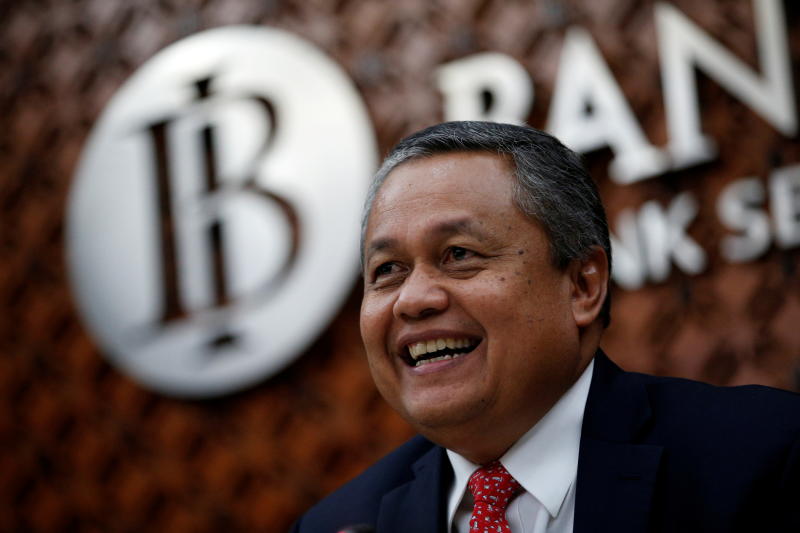
Indonesia’s central bank left its benchmark interest rate unchanged at a record low as the economy begins to show signs of recovery from the country’s worst coronavirus wave.
Bank Indonesia held the seven-day reverse repurchase rate at 3.5% on Tuesday, as expected by all 31 analysts in a Bloomberg survey. The key rate has been at that level since February, and central bank Governor Perry Warjiyo has signalled the bank could remain on hold until at least until year-end.
“The decision is consistent with the need to maintain rupiah exchange rate stability and efforts for the economic recovery,” Warjiyo said in a briefing Tuesday in Jakarta.
The rupiah was little changed at 14,245 to the U.S. dollar after the decision. The benchmark stock index pared its losses to 0.2% after the announcement.
Wave Crested
Southeast Asia’s biggest economy has been buoyed by a sharp improvement in its Covid-19 outbreak thanks to movement curbs, aggressive testing and an advancing vaccination campaign. Last week the country added its fewest new cases since November, while daily fatalities are at a three-month low. Lockdown measures have been relaxed across the nation, with shopping malls, tourist sites and places of worship reopening with limited capacity.
That bodes well for an economy reliant on private consumption, especially with gross domestic product growth expected to dip to about 5% in the third quarter, as the outbreak peaked in July and August. Bank Indonesia expects gross domestic product to expand 3.5%-4.3% this year, slightly below the government’s 3.7%-4.5% estimate.
As the world’s major central banks weigh unwinding their pandemic-era monetary support, Bank Indonesia has affirmed it will keep policy settings loose for as long as possible while the recovery firms up, even extending a program to buy government bonds through next year. Consumer prices rose 1.6% in August, well below the central bank’s 2%-4% target range for inflation.
The rupiah, a bellwether of risk for emerging Asia, is also seeing a bout of strength as the market appears to have priced in the U.S. Federal Reserve’s expected tapering of asset purchases. The rupiah is the best-performing currency among developing markets this quarter, with a gain of 1.8% against the dollar, according to data compiled by Bloomberg.
“With inflation below the central bank’s 2%-4% target, we expect BI Governor Warjiyo to have all the space to retain his ‘pro-growth’ stance to support the recovery,” said Nicholas Mapa, an economist at ING Groep NV. “We believe that BI will keep rates untouched for the balance of 2021 given the current inflation and growth situation.”
Warjiyo told reporters the central bank is prepared for Fed tapering, which he expects to begin in November. In 2013, emerging markets like Indonesia were rocked when the Fed began tapering its asset purchases from the global financial crisis.
“With our assessment and our experience, we expect to be able to anticipate Fed tapering, which will be lower in impact compared to 2013,” Warjiyo said.